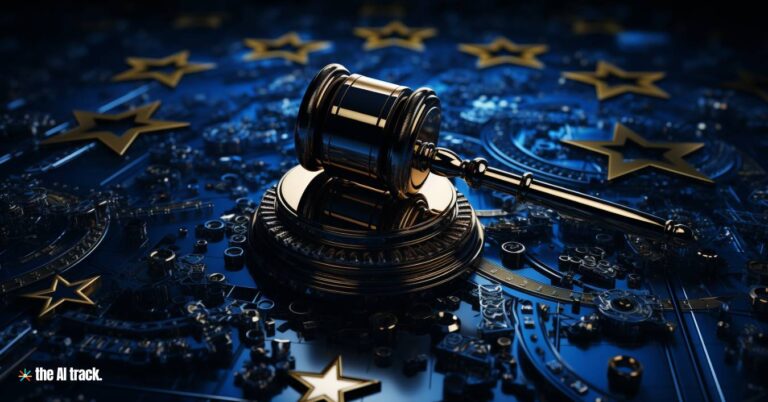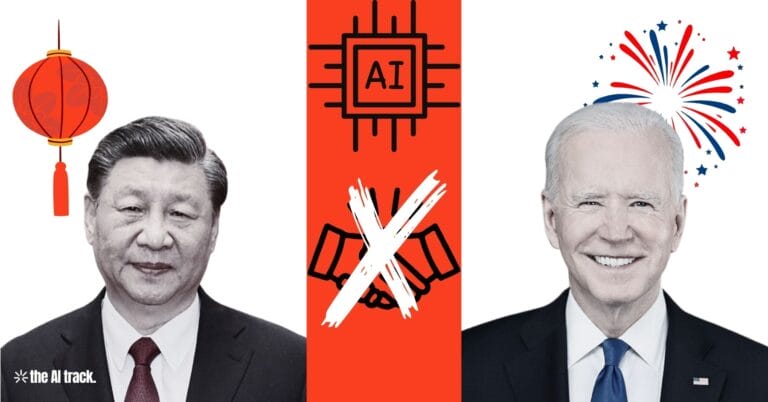The “EU AI Legislation Act”, the European Union’s landmark legislation on artificial intelligence (AI) represents a significant step towards establishing global standards for AI regulation. This regulation represents one of the world’s first comprehensive attempts to control the use of AI. This pioneering effort aims to balance the rapid advancement of AI technologies with the need to safeguard fundamental human rights and ensure public safety.

Key Points
- Timeline for EU AI Legislation Act Implementation: The EU began work on the EU AI Legislation Act in 2018, and the first draft became available three years later. The European Parliament will vote on the EU AI Legislation Act proposals, but the legislation is not expected to take effect until at least 2025. This allows time for a thorough review and for member states to prepare for the changes.
- Extensive Negotiations and Lobbying: After three days of intense negotiations, spanning a total of 35 hours, an agreement was reached between member states and the European Parliament. These discussions took place amidst significant lobbying efforts by technology companies and concerns voiced by civil society and European unions.
- Legislative Process and Approval Timeline: Owing to the topic’s complexity and the challenging compromises involved, the EU AI Legislation Act will need to be formalized and sent to the European Parliament for approval by the plenary session. Subsequently, it will require approval from member states through the Council. The completion of this process is expected in early 2024, followed by a transitional period for implementing the new legislation.
- Regulations on AI Applications: The EU AI legislation covers a range of AI applications, including government use of AI in biometric surveillance and AI systems like ChatGPT. It necessitates transparency in AI foundation models, especially those with systemic risks, and restricts the use of real-time biometric surveillance in public spaces.
- Biometric Surveillance and Privacy Concerns: A critical aspect of the EU AI legislation is the regulation of real-time biometric surveillance in public spaces, balancing security needs with privacy and human rights. The law allows limited use of such surveillance for preventing serious crimes and terrorism while prohibiting biometric categorization in workplaces and educational settings.
- Consumer Rights and Penalties for Non-compliance: Consumers are granted the right to file complaints against AI systems. Violations of the regulations can result in substantial fines, ranging from 7.5 million euros to 35 million euros, depending on the severity and nature of the infringement.
- Global Benchmark and Future Outlook: The EU AI Legislation is anticipated to serve as a benchmark for other countries, influencing global AI policies. This comprehensive approach contrasts with varied strategies in other parts of the world, emphasizing ethical and responsible AI development.
Global AI Regulatory Initiatives
While the EU AI legislation is pioneering, it’s part of a broader global effort to regulate AI. Here are some notable initiatives:
- Biden’s AI Executive Order: The United States has also been working on AI regulation but has not yet passed anything as comprehensive as the AI Act. President Biden signed a groundbreaking Executive Order on October 30, 2023, focusing on Safe, Secure, and Trustworthy AI. This comprehensive order addresses AI safety, security, privacy, equity, consumer protection, workers’ rights, innovation, global leadership, and government use of AI, marking a significant U.S. government action in this field.
- Global Pact for ‘Secure by Design’ AI: An international agreement signed by 18 countries, including the U.S. and Britain, emphasizes the importance of safety and security in AI development. The 20-page document provides a framework for mitigating risks associated with AI technologies, advocating for “secure by design” AI systems.
- US-China Dialogue on AI in Defense Systems: A proposed agreement between US President Joe Biden and Chinese President Xi Jinping focuses on AI’s use in defense systems. It aims to ban AI from autonomous systems like drones and nuclear warhead control, signaling a significant step in international AI regulation.
- The Bletchley Park Summit: Held on November 1-2, 2023, this summit fostered international cooperation on AI risks. UK’s Prime Minister Rishi Sunak, US Vice-President Kamala Harris, and Elon Musk participated, highlighting the global challenge of balancing AI regulation and innovation. The summit resulted in the Bletchley Declaration, a commitment to joint AI safety research by the UK, US, EU, Australia, and China.
- The Bletchley Declaration: This declaration marks a commitment by major global players to collaborate on AI safety research. Despite competing interests and a lack of consensus on regulations, this move towards global cooperation is significant. More summits and discussions are planned under this initiative, underscoring the importance of international collaboration in AI governance.
These initiatives demonstrate a growing global recognition of the need for comprehensive and ethical AI regulation. As AI technologies continue to evolve, international cooperation and unified regulatory frameworks will be crucial in ensuring AI’s safe and beneficial development for all.
Conclusion:
The EU AI legislation is a groundbreaking effort, setting a new global standard in AI governance. As it moves towards implementation, the regulation will likely have a significant impact on AI innovation, public trust in technology, and global AI governance norms. The EU is leading the way in balancing technological advancement with ethical considerations and fundamental rights.
Sources
- AI: EU agrees landmark deal on regulation of artificial intelligence | BBC
- Europe agrees landmark AI regulation deal | Reuters
- European Union reaches agreement on landmark legislation to regulate AI | Al Jazeera
- EU agrees landmark rules on artificial intelligence | Financial Times
- EU agrees to landmark rules governing AI after ChatGPT takes off | CNBC
- E.U. Agrees on Landmark Artificial Intelligence Rules | The New York TimesE.U. Agrees on Landmark Artificial Intelligence Rules | The New York Times
- EU reaches provisional agreement on AI Act, paving way for landmark law | The Verge
- EU Officials Reach Deal On ‘Historic’ AI Regulation | Forbes
The EU Just Passed Sweeping New Rules to Regulate AI | Wired






